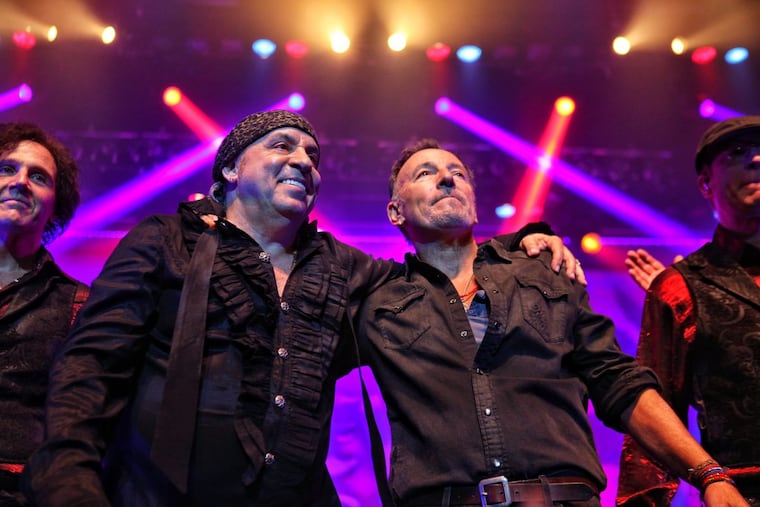10 business tips from Bruce Springsteen's autobiography
Some of the strongest writing is on his struggle with depression, his inability to stay with a woman long term (before wife Patti Scialfa), and how he spent 30 years in talk therapy with a psychiatrist.

Bruce Springsteen ran one of the most successful rock start-ups in history. The poor kid from Freehold, N.J., has proven to be a terrific manager of his career, creatively and financially.
His autobiography, Born to Run, suggests many good business tips. Here are 10:
Knowing your weaknesses. Early on, Springsteen realized that his guitar skills were "rudimentary" and his voice was "a journeyman's instrument." He concluded: "The songs would have to be my fireworks." That he was a great performer with an unbelievable work ethic would help, too.
Declaring yourself the boss. Springsteen decided early on that it would always be his band, following his muse "without unnecessary argument." Forty years later, he called this "one of the smartest decisions of my young life," because "everyone knew their jobs, their boundaries, their blessings and limitations."
Learning for a lifetime. Springsteen studied singers, and picked up skills in breathing and phrasing to improve weaknesses. He always seemed to be learning, even if the lessons were not always pleasant. One night at the Captain's Garter in Neptune, N.J., his band had just killed it and expected to be hired back. Instead, it was fired. "It's a bar, you idiots," the owner told them. "No one was drinking. They were too busy listening to the music."
Learning from getting taken advantage of. Springsteen got hosed when he signed his first music contract with his manager. He got half the writer's royalties, but had to cover all the expenses and received no publishing revenue. Springsteen knew nothing of lawyers. Like Elvis with Col. Parker and so many others, the Boss was hell-bent on signing anything. And he did. But five years later, when the contract came up for renewal, Springsteen fired his manager and reversed that early mistake. "I'm one of the few artists who owns everything he ever created," he writes.
Launching a low-cost start-up. Talk about low rent. Springsteen shared a two-room apartment when he was making his first record, Greetings from Asbury Park. His friend's water bed took up all of one room; Bruce slept on the floor of the kitchen in a sleeping bag.
Having a mission statement. "When you came to work with me, I had to be assured you'd bring your heart," Springsteen writes. "We are a philosophy, a collective, with a professional code of honor. It is based on the principle that we bring our best, everything we have, on this night, to remind you of everything you have, your best." After some associates sued him, Springsteen began requiring employees to sign contracts, clarifying roles further, leaving "us free to just play."
Respecting the power. Springsteen writes about the influence of radio DJs, the folks who spun the records back in the 1970s, who could make or break artists. Springsteen cultivated key friendships and gives a special shout-out to Philly's David Dye and the late Ed Sciaky for their help along the way.
Having a hungry heart. Some of the strongest writing is on Springsteen's struggle with depression, his inability to stay with a woman long term (before wife Patty Scialfa) and how he spent 30 years in talk therapy with a psychiatrist. But choosing care also represents another excellent decision, sharpening his psyche for a life and a career that keep on trucking. He also doesn't sugarcoat this and say his struggle is over. At 60, he was out of commission for a year and half recovering from depression.
Giving back. It's trendy for start-ups to trumpet their gifts to charity. Springsteen was into that long ago, reaching out to veterans and helping to build a national food bank system.
Demystifying rock. "People don't come to rock shows to learn something. They come to be reminded of something they already know and feel deep down in their gut," he writes. "That's when the world is at its best, when we are at our best, when life feels fullest, and one and one equals three. It's the essential equation of love, art, and rock-and-roll bands. It's the reason … true rock-and-roll will never die."